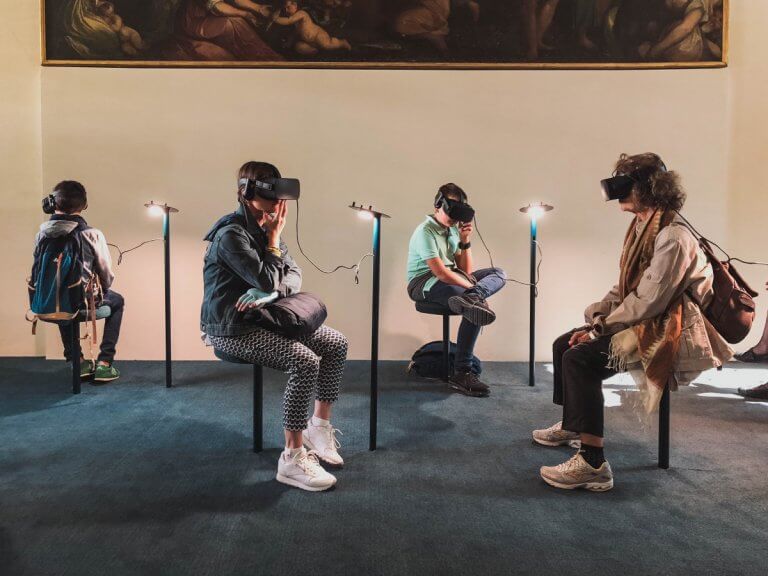
To remain in sync with digital demands, many universities have upgraded course selections with a range of contemporary, technological degrees.
One university that’s doing just that is the University of Advancing Technology in Arizona. Through its Bachelor of Arts degree in Virtual Reality, students are transforming the standards of gaming technology and practices.

Virtual Reality is taking over our screens. Source: Giphy
Like most virtual reality (VR) programmes, this course aims to teach students about mid-level programming and develops creative skillsets.
While experiencing the VR syllabus, students are encouraged to simulate big data, to create augmented reality apps, to build immersive games using code and VR headgear, as well as to create immersive simulations.
Sounds impressive right? Well – there’s more…
Many people see VR as a blessing to the entertainment industry. Students of this field are able to design new products with the power to recreate day-to-day experiences, producing awe-inspiring digital landscapes for game players to roam.

Anyone is free to roam the world of VR! Source: Giphy
By inspiring student minds with holographic technologies and the inner workings of VR devices, universities that offer this course setting learners up for tomorrow’s most lucrative jobs.
What jobs can I get with a Virtual Reality degree?
If you’re excited about the career prospects of a VR degree but you’re unsure of what the future may hold, here’s a list of potential job roles you could secure after graduation:
-VR Specialist/Consultant/Programmer
-System Analyst
-Project Manager
-Tech Researcher
-Hardware Engineer
-Software Engineer
-3D Modeler
-Trainer
-360 Video Developer

Searching for a job in VR may be super easy! Source: Giphy
How relevant is VR right now?
Perhaps you’re less concerned about the potential jobs and more concerned about how relevant a degree in VR would be right now.
Well, according to TechHQ, VR isn’t just for gamers: “Although VR is transforming the gaming landscape, the technology also has possibilities outside of this space. Enterprise VR is a quietly successful segment of this emerging industry that perhaps doesn’t get the attention it so rightly deserves.”
In the education sector, “VR is increasingly becoming a powerful tool in the training and education of employees. It adds a valuable interactive level to the more traditional methods.”
In the marketing sector, “Many brands are exploring immersive experiences in their marketing campaigns using virtual reality.”
And in the sales sector, “Many businesses are harnessing the power of VR to promote their product or services. The technology allows customers to experience and visualize a product virtually.”
Virtual reality is helping professionals address their fear of public speaking https://t.co/Chd24jwDbH pic.twitter.com/dx4LTw9iuB
— TechHQ (@techhq) May 19, 2018
All things considered, a degree in VR is most definitely worth it!
Liked this? Then you’ll love…
More students are paying for ghostwritten essays- study
Degrees Explained: Should I study a Master’s of Library Science?







